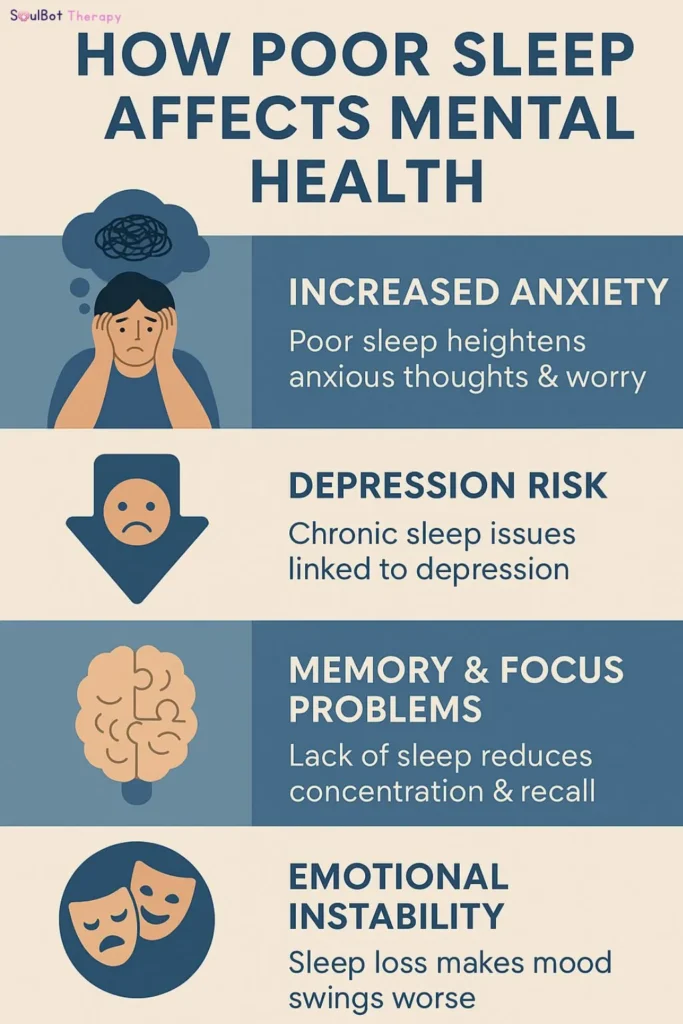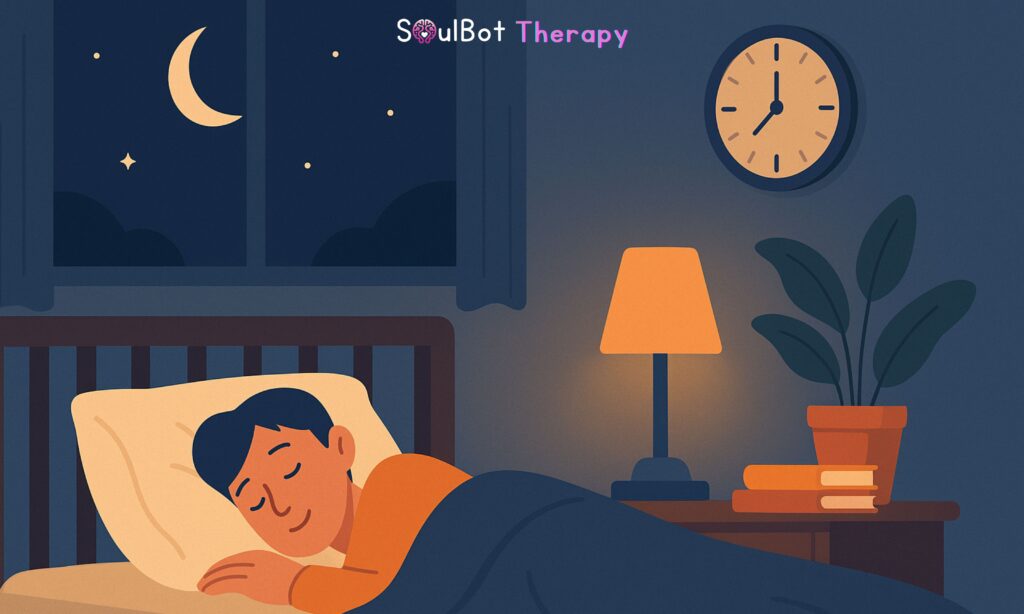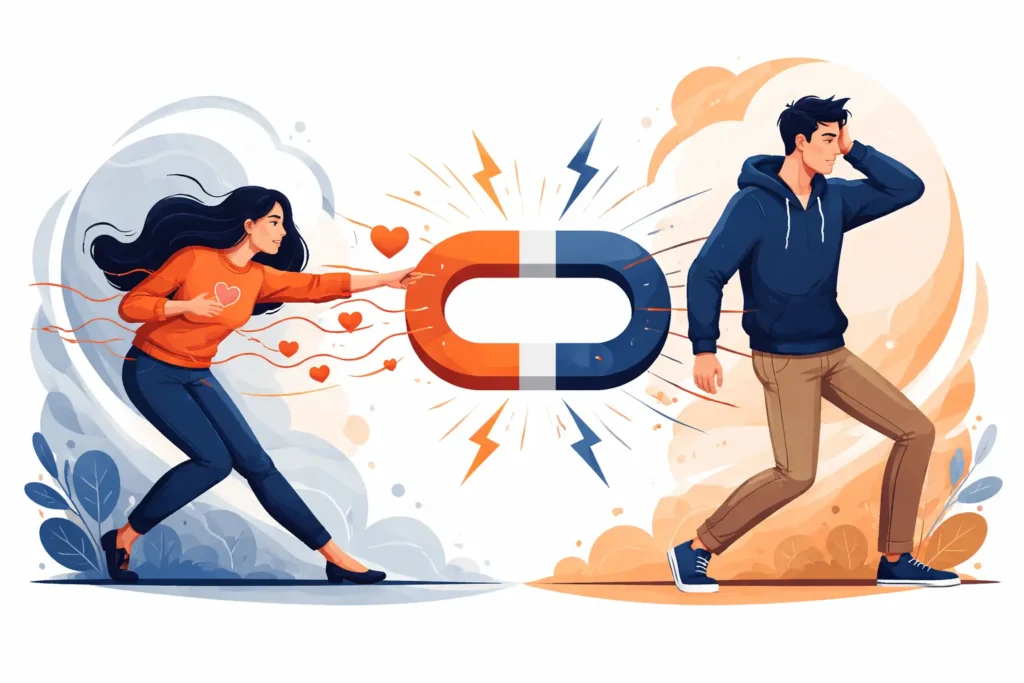Tired of tossing and turning at night? You’re not alone. Millions struggle with poor sleep, but science shows that your habits, which psychologists call sleep hygiene, play a bigger role than you think. The good news?
Following sleep hygiene tips backed by psychology can improve sleep quality, boost focus, and protect your mental health.
What Is Sleep Hygiene and Why Does It Matter?
Sleep hygiene is the behaviours and environmental factors that determine how well you sleep. Like brushing your teeth for oral health, good sleep hygiene habits protect your rest and keep your mind sharp.
Poor sleep hygiene often shows up as:
- Irregular bedtimes
- Scrolling on your phone in bed
- Drinking caffeine late in the day
- Sleeping in noisy or bright environments
What Does Psychology Say About Sleep Hygiene?
Psychologists have studied sleep for decades, and the evidence is clear: consistent routines and healthy habits lead to better rest.
- The psychology of sleep hygiene shows that the brain loves rhythm; going to bed and waking up simultaneously strengthens your circadian rhythm.
- Relaxation techniques such as meditation, journaling, or breathwork calm the nervous system before sleep.
- Cognitive Behavioural Therapy for Insomnia (CBT-I) is considered the gold standard treatment, proving how psychology-based strategies can reset poor sleep habits.
💡 SoulFact: According to the American Psychological Association, people who follow structured sleep hygiene routines experience significantly better mood regulation and cognitive performance.

How Does Poor Sleep Affect Mental Health?
The link between mental health and sleep quality is undeniable. Poor sleep can trigger:
- Irritability and mood swings
- Memory problems
- Higher stress and anxiety levels
- Increased risk of depression
What Are the Best Sleep Hygiene Tips Backed by Psychology?
1. Stick to a Consistent Sleep Schedule
Go to bed and wake up at the same time daily, even on weekends. Consistency tells your brain when it’s time to rest.
2. Optimise Your Sleep Environment
Keep your room dark, quiet, and calm. Consider blackout curtains, white noise, or eye masks for maximum comfort.
3. Limit Screens Before Bed
Blue light suppresses melatonin, the sleep hormone—swap late-night scrolling for reading or journaling.
4. Be Mindful of Stimulants
Avoid caffeine or nicotine at least 6 hours before bedtime. Both overstimulate the nervous system and delay sleep.
5. Try Relaxation Techniques
Deep breathing, progressive muscle relaxation, or guided meditations prepare your mind for rest.
6. Reframe Your Mindset With CBT-I Principles
Instead of worrying about not sleeping, train your brain to associate your bed with rest. If you can’t fall asleep in 20 minutes, get up, do something calming, and return when sleepy.
💡 SoulFact: Studies show that CBT-I reduces insomnia symptoms in 70–80% of participants, making it the most effective psychology-backed sleep intervention.
How Can You Improve Sleep Habits Long-Term?
Lasting change happens when habits become automatic. Some ways to sustain progress:
- Track your sleep with a journal or app.
- Pair bedtime routines with relaxing rituals (tea, reading, gratitude journaling).
- Use AI-based sleep coaching tools for personalised insights.
- Treat sleep as a priority, not a luxury.
When Should You Seek Professional Support for Sleep Issues?
If poor sleep persists for over 3 months or if insomnia affects your daily life, it’s time to seek help. Psychologists trained in CBT-I or sleep medicine specialists can provide structured solutions beyond lifestyle changes.
🔗 SoulInsight: The Sleep Foundation reports that just one night of poor sleep can impair emotional regulation, making you more reactive and less focused the next day.
Conclusion: Small Habits, Big Sleep Wins
Better sleep isn’t about luck, it’s about behaviour. Applying sleep hygiene tips backed by psychology can retrain your brain and body for deeper, restorative rest. Start small, stay consistent, and remember: your mind and mental health depend on the quality of your sleep.
👉 Need personalised guidance? Chat with SoulBot, your AI sleep coach, for psychology-backed tips on how to improve rest tonight.







